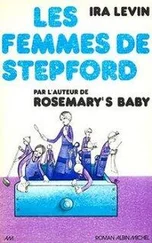“I think I would know of such a group,” he said, “and I’ve never heard of any group of any kind whose members are all sixty-five.”
The young woman stayed standing. “Maybe their being sixty-five now isn’t what’s important,” she said. “The…connection might have been established when they were younger, when they were all thirty -five or twenty -five. Maybe they were all involved in a certain military action in the war, and killing them is an act of revenge.”
“Some are German,” he said, “and some are English and American, and some are Swedes, who were neutral. But—”
“A U.N. patrol!” someone called.
“They’d have been too old,” he answered, and looked again to the long-haired young woman, who had sat down. “But that’s an interesting point,” he said, “about sixty-five not being the significant age, for of course they’ve all been the same ages all their lives, so that opens the door to other possibilities. Thank you.”
He wrote: Link at earlier age? —and someone called out, “Are they natives of those countries or only living there?”
He looked up. “Another good point,” he said. “I don’t know. Perhaps they were one nationality originally.” Where born? he wrote. “This is good, keep it up!” He pointed.
A young man sitting cross-legged in the front row said, “They’re people who help you , your major contributors.”
“You flatter me. I’m not that important and I also don’t have ninety-four major contributors. Of any age.” He pointed elsewhere.
The Barry-like young man: “When does the two-and-a-half-year period begin, sir?”
“Two days ago.”
“Then it ends in the spring of 1977. Is there an important political event scheduled to take place then? Maybe the killings are going to be announced, as a show of strength, or a warning.”
“But why these particular men? Yet again an interesting point. Does anyone know of an important event, political or otherwise, scheduled for the spring of 1977?” He looked around.
Silence, and heads shaking. “My graduation!” someone called. Laughter and applause.
Spring ’77? he wrote, and smiling, pointed.
The young man in the blue sweater again, with his high-pitched voice: “The men aren’t highly placed themselves, but their sons, who are in their forties, are. And the men are to be killed so that their sons will have to neglect important work to attend their funerals.”
Derision. Booing and hoots of scorn.
“That’s slightly far-fetched,” he said, “but still, there’s the germ of something to think about. Are the men related to important people, or associated with them somehow?” He wrote: Relations? Friends? —and pointed.
The shrewd-looking blond young man stood up. Smiling, he said, “Herr Liebermann, is this really only a hypothetical problem?”
Never pick this boy again. A stillness expanded through the auditorium. “Of course it is,” he said.
“Then you must ask your friend to give you some more information,” the shrewd-looking young man said. “Not even the great brains of Heidelberg can solve his problem without at least one more relevant fact about the ninety-four men. Given the information we have now, we can only speculate blindly.”
“You’re right,” he said, “more information is needed. But the speculation helps; it suggests possibilities.” He looked around. “Does anyone have any more speculation?”
A hand came up at the left rear; he pointed at it.
An elderly man stood up, white-haired and frail-looking—a faculty member or perhaps a student’s grandfather. Leaning on the back of the seat before him, he said in a firm and contemptuous voice, “Not one of the suggestions made so far has recognized Dr. Mengele’s presence in the problem. Why is he introduced if the killings are only political killings of the conventional kind, which the Comrades Organization could engineer without him? He is introduced, obviously, because of his medical background , and I therefore suggest a medical aspect to the killings. They might, for instance, constitute the covert testing of a new means of killing, and the men would therefore have been chosen precisely because they’re old, unimportant, and no menace to Nazism. A testing program would also explain the lengthy time-span. In the spring of 1977 the real killings would begin.” He sat down.
Liebermann stood looking at him for a moment, and then he said, “Thank you, sir.” To the whole audience he said, “I hope for your sake this gentleman is one of your professors.”
“He is,” several voices assured him bitterly, and the name Geirasch was spoken.
WHY M.??? he wrote—and looked up again in the man’s direction. “I don’t think a testing program would be limited to civil servants,” he said, “or even carried out in this part of the world rather than in South America, but you’re surely right about there being a specific reason for Dr. Mengele’s involvement. Can anyone think of one?” He looked around.
The young people sat silently.
“A medical aspect to the ninety-four killings?” He looked to the long-haired young woman; she shook her head.
The Barry-like young man shook his, and so did the young man in the blue sweater.
He hesitated—and looked to the shrewd-looking blond young man, who smiled at him and shook his head.
He looked at his card on the lectern:
Money?
Link at earlier age?
Where born?
Spring ’77?
Relations? Friends?
WHY M.???
He looked at the audience. “Thank you,” he said. “You haven’t solved the problem, but you’ve given me suggestions that may lead to the solution, so I’m grateful to you. We’ll go back now to your questions.”
Hands sprang up. He pointed.
A young woman next to the Barry-like young man stood up and said, “Herr Liebermann, what’s your opinion of Moshe Gorin and the Jewish Defenders?”
“I’ve never met Rabbi Gorin, so I have no opinion of him personally,” he said automatically. “As for his Young Jewish Defenders; if they’re defending, fine. But if, as is sometimes reported, they’re attacking, then not so fine. Brown shirts are never good, no matter who’s wearing them.”
And silver-haired Horst Hessen, sweating in bright sunlight, raised large binoculars to his blue eyes and watched a bare-chested man in a white sun hat riding a power mower slowly across a vivid green lawn. A flagpole flew an American flag; the house beyond was a neat one-story box of glass and redwood. A black cloud shot with leaping orange replaced the man and the mower, and a thud of explosion came bluntly through distance.
MENGELE HAD MOVEDthe Führer’s portrait and all the smaller photos and mementos of him over to the west wall above the sofa—which had meant moving his own degrees and commendations and family photos to whatever spaces he could find for them between the two outside windows in the south wall and around the laboratory observation window and the doorway in the east wall. He had then had the cleared north wall fitted with a waist-level three-inch wood molding, above which the pale-gray wallpaper had been stripped away. Two coats of white paint had been laid on, the first flat and the second semi-glossy. The molding had been painted pale gray. When all the paint was thoroughly dry he had had a sign-painter flown down from Rio.
The sign-painter made beautifully straight thin black lines and lettered handsomely, but in his first light pencilings he showed an inclination to miscopy and/or misplace unfamiliar marks of pronunciation, and to go his own Brazilian way in the matter of spelling. For four days, therefore, Mengele had sat behind his desk, watching, instructing, warning. He had come to dislike the sign-painter, and by the second day was glad the dolt was going to be thrown from the plane.
Читать дальше











